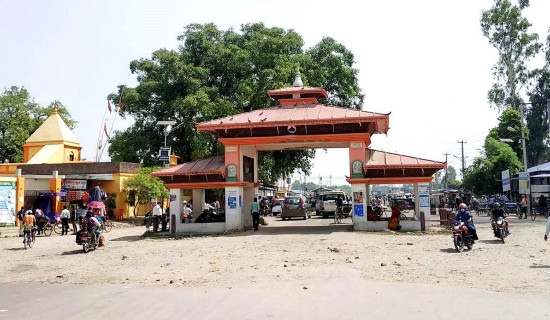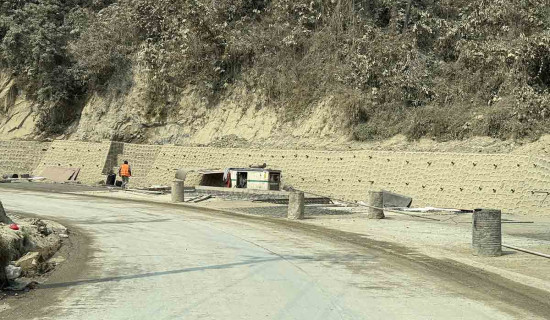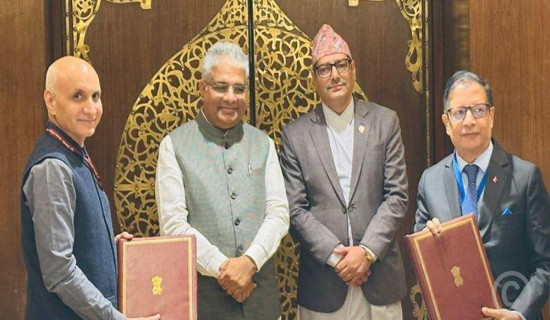- Thursday, 26 February 2026
How SCO agri-tech partnerships are feeding growth
Muhammad Zamir Assadi
In the heat of Islamabad, Abdul Ghaffar Shar is busy making calls and finalizing schedules. A major B2B forum is about to take place in Beijing alongside the Shanghai Cooperation Organization (SCO) Summit, and Shar is helping Pakistani firms secure a spot. For him, it’s more than just another business trip—it’s the continuation of a journey that began years ago in China’s agricultural heartland.
Shar earned his Ph.D. at Northwest A&F University in Shaanxi Province, where he first encountered advanced seed varieties and state-of-the-art irrigation systems. Now back in Pakistan, he runs a company that connects local farmers with Chinese markets while introducing agricultural technologies tailored to Pakistani soil.
“Salt-resistant, high-yield varieties of maize and wheat can transform our villages,” he said. “They mean better harvests, more secure incomes, and a chance for farmers to break cycles of poverty.”
Shar’s story is one thread in a wider tapestry of cooperation taking root under the SCO, a ten-nation bloc that includes China, Russia, Pakistan, India, and four Central Asian states. Extending beyond collaboration in energy and defense, agriculture across the SCO is proving to be one of the most practical and transformative areas of collaboration.
For Pakistan, the partnership has already yielded tangible results. At the SCO Agricultural Technology Exchange and Training Base in Yangling, Shaanxi Province, more than 120 agricultural technicians and 140 postgraduate students have received specialized training. Last year, Prime Minister Shehbaz Sharif signed an agreement with China to train 1,000 Pakistani experts in modern farming techniques.
The first group of 292 returned this July after completing three months of hands-on training in livestock genomics, seed production, irrigation systems, and disease prevention. All 1,000 are expected to complete their training by the end of this year.
The push extends far beyond Pakistan. In Uzbekistan, sprawling demonstration farms are testing over 40 crop varieties—from cotton and rapeseed to apples, figs, and high-oleic peanuts. Chinese experts rotate in to teach local farmers how to enrich soil, cut pesticide use through biological controls, and deploy solar-powered irrigation systems.
In July, President Shavkat Mirziyoyev approved the country’s first presidentially backed international agricultural park in Tashkent. Developed in partnership with Yangling, the park is set to become a hub for smart farming, efficient irrigation, and agri-processing.
Across the border in Kazakhstan, Shaanxi-based Aiju Grain and Oil Industrial Group has rolled out contract farming on a massive scale. Farmers are provided with improved seeds and technical guidance, while the company guarantees purchase of their harvests. Today, the model covers 100,000 hectares, helping stabilize incomes and strengthen food supply chains.
The company has also invested heavily in infrastructure: a one-million-ton grain hub in northern Kazakhstan, a 100,000-ton transit station on the Xinjiang border, and a processing-and-sales network in Xi’an. Together, these projects have created nearly 1,000 jobs and boosted Kazakhstan’s grain trade with China.
The impact of these initiatives is tangible. In Central Asia, new wheat varieties have increased yields by as much as 60 percent. Smart irrigation systems are slashing water use by half. In Kyrgyzstan, dwarf apple orchards are producing 300 kilograms more per mu than traditional methods.
Meanwhile, Yangling’s trade center now features more than 1,200 agricultural and handicraft products from 35 countries, giving SCO members—from Tajikistan to Russia—a direct pipeline to Chinese markets. In 2023, the zone’s total trade exceeded 1.34 billion yuan, with annual growth averaging over 20 percent for six straight years.
“The strengths are highly complementary,” said Wang, an official with the SCO office in Shaanxi. “Member states have fertile land and space. China provides advanced technologies, mechanization, and management models. The potential is enormous.”
According to He Ling, Executive Deputy Director of the Yangling Agricultural Hi-Tech Demonstration Zone, the next phase of cooperation will include tailored training programs and more bilateral and multilateral initiatives. The aim is to train more than 15,000 agricultural officials and technicians each year through both online and in-person courses.
Yangling also plans to work with SCO partners to build commodity trade centers and agri-processing hubs, further expanding trade in seeds, high-quality grain, and agricultural inputs. The goal: to further elevate regional agricultural trade while equipping farmers with the tools to thrive in a changing global food landscape.
















